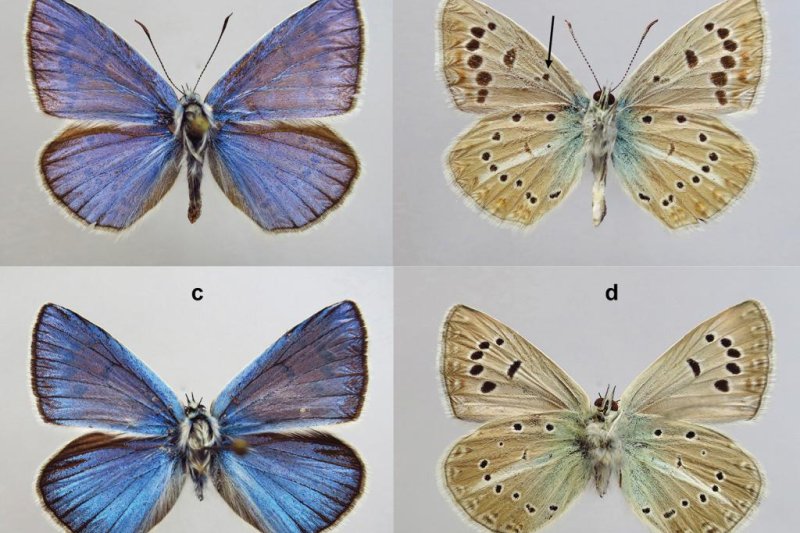This new butterfly species, the South Russian blue, Polyommatus australorossicus, was discovered in Russia's Caucasus Mountains. Photo by Vladimir Lukhtanov
Nov. 27 (UPI) -- Entomologists in Russia have discovered a new butterfly species with an unusual number of chromosomes. The newly named South Russian blue has 46 chromosomes, the same number as humans.
When Vladimir Lukhtanov, entomologist and evolutionary biologist at the Zoological Institute in St. Petersburg, first captured and analyzed specimens of the South Russian blue butterfly in 1997, he thought they were Azerbaijani blues.
However, genetic sequencing proved the specimens were a separate species.
In the years since the initial discovery, Lukhtanov and research partner Alexander Dantchenko, entomologist and chemist at the Moscow State University, have sequenced the genomes of hundreds of butterfly species in an effort to determine the classification of the specimens first recovered from the Caucasus mountains in southern Russia.
It took two decades, but the scientists are finally convinced the butterflies' uniqueness warrants a new species designation.
They described the new species, Polyommatus australorossicus, in the journal Comparative Cytogenetics.
"This publication is the long-awaited completion of a twenty-year history," Lukhtanov said in a news release.
Field observations backed up the conclusions of their genetic analysis. South Russian blue caterpillars feed on different plants than their closest relatives.
Researchers hope their discovery will encourage conservationists to protect the unique species.
"We are proud of our research," said Lukhtanov. "It contributes greatly to both the study of biodiversity and understanding the mechanisms of biological evolution."















